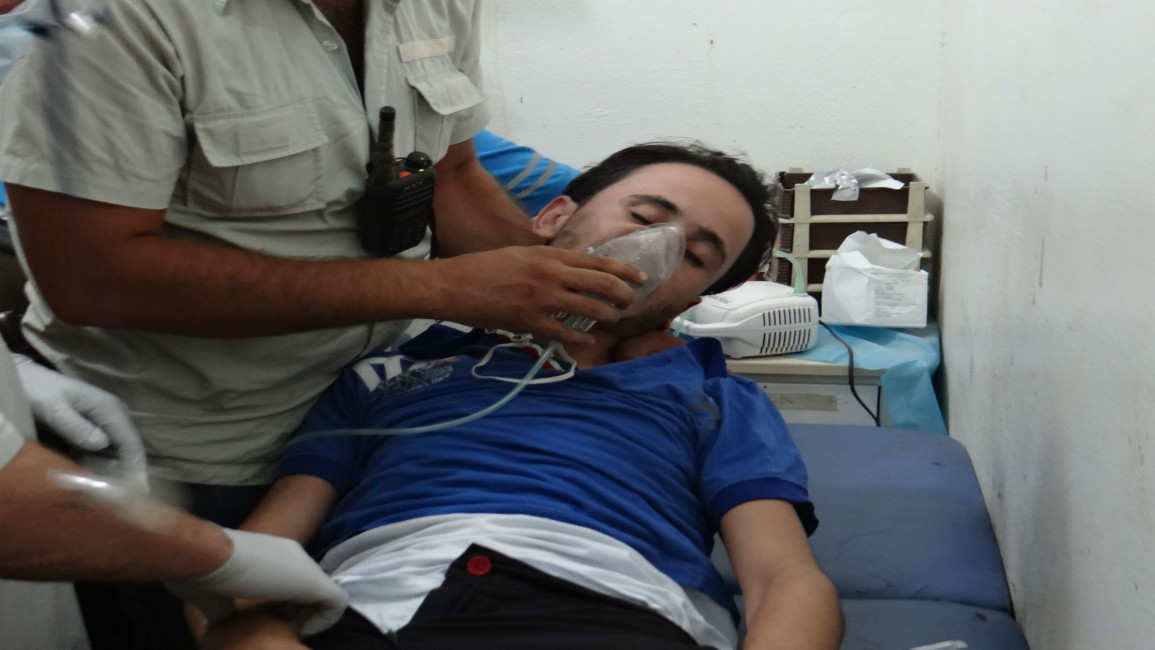Chemical weapons watchdog concerned over Syria gas attack
The world's chemical weapons watchdog Wednesday raised concerns over reports of a chlorine gas attack near the battleground Syrian city of Aleppo.
Some 24 people reportedly suffered breathing difficulties in Saraqib, a town 50 kilometres (30 miles) south of Aleppo, after a barrel bomb attack on Tuesday.
A civil defence source had told The New Arab that two barrel bombs containing poisonous gas were dropped on a residential area in Saraqib, Idlib provine, in the early hours of Tuesday morning.
"These reports are of great concern," Ahmet Uzumcu, the head of the Organisation for the Prohibition of Chemical Weapons (OPCW), said in a statement.
The UN-backed group based in The Hague "continues to examine any credible reports" of chemical weapons use, he added.
The incident took place close to where Russia said on Monday one of its military helicopters was shot down, killing the five people on board.
Uzumcu added that under international conventions the use of chemical weapons "by anyone under any circumstances" is seen "as reprehensible and wholly contrary to the legal norms established by the international community".
A neurologist, Ibrahim al-Assad, said he treated 16 of 29 cases brought to his hospital on Monday night, most of whom were women and children.
 |
Rebels and activists have reported chlorine gas attacks in the town before, but the lack of chemical labs or independent testers makes it difficult to verify these claims. |  |
One elderly man needed critical care but most of the casualties were suffering from breathing difficulties, red eyes and wheezing, Assad said.
He said first responders smelled the gas at the site of the bomb attack, which he described as a busy shopping area near an ice cream shop.
Rebels and activists have reported chlorine gas attacks in the town before, but the lack of chemical labs or independent testers makes it difficult to verify these claims. The government denies that is has launched chlorine gas attacks.
Syrian rebels and government forces traded accusations on Tuesday over who carried out the attack.
Syria's conflict has killed more than 280,000 people and drawn in world powers since it erupted in March 2011, as protests calling for the fall of President Bashar al-Assad's regime escalated into all-out civil war.
In January, the OPCW announced all Syria's declared chemical arms stockpile had been completely destroyed.
But concerns remain that undeclared amounts of sarin gas and other chemical weapons have still been used in the conflict.
A joint investigation set up by the UN probing nine chemical weapons attacks in Syria in 2014 and 2015 is due to report its findings this month.
Agencies contributed to this report.



